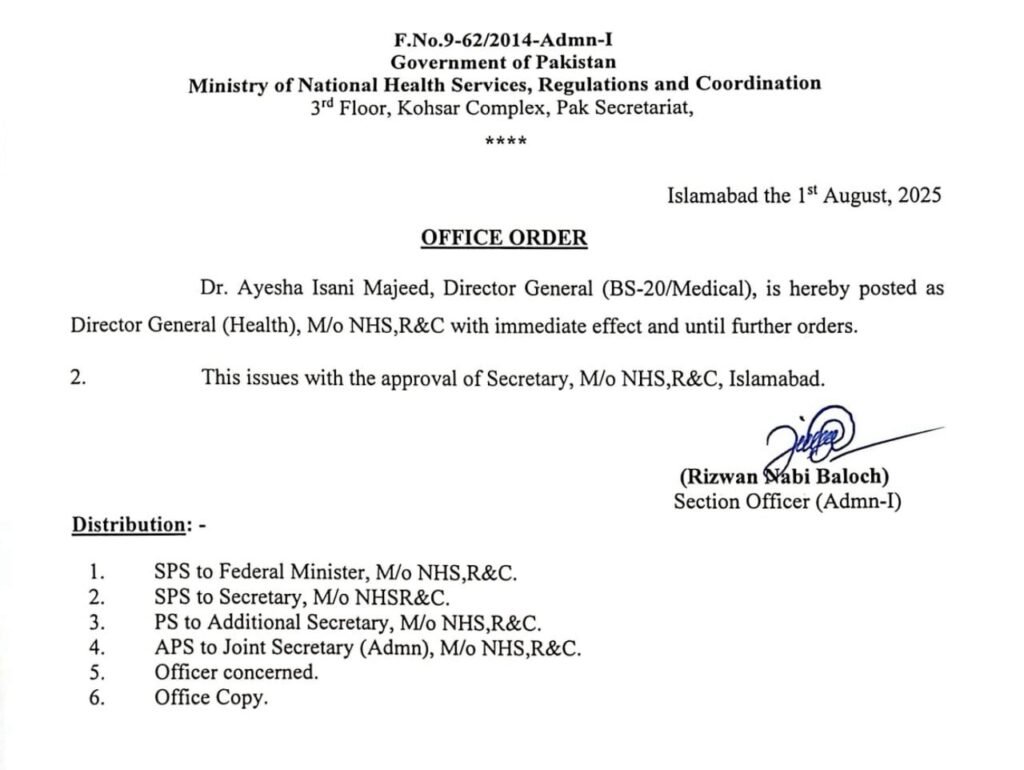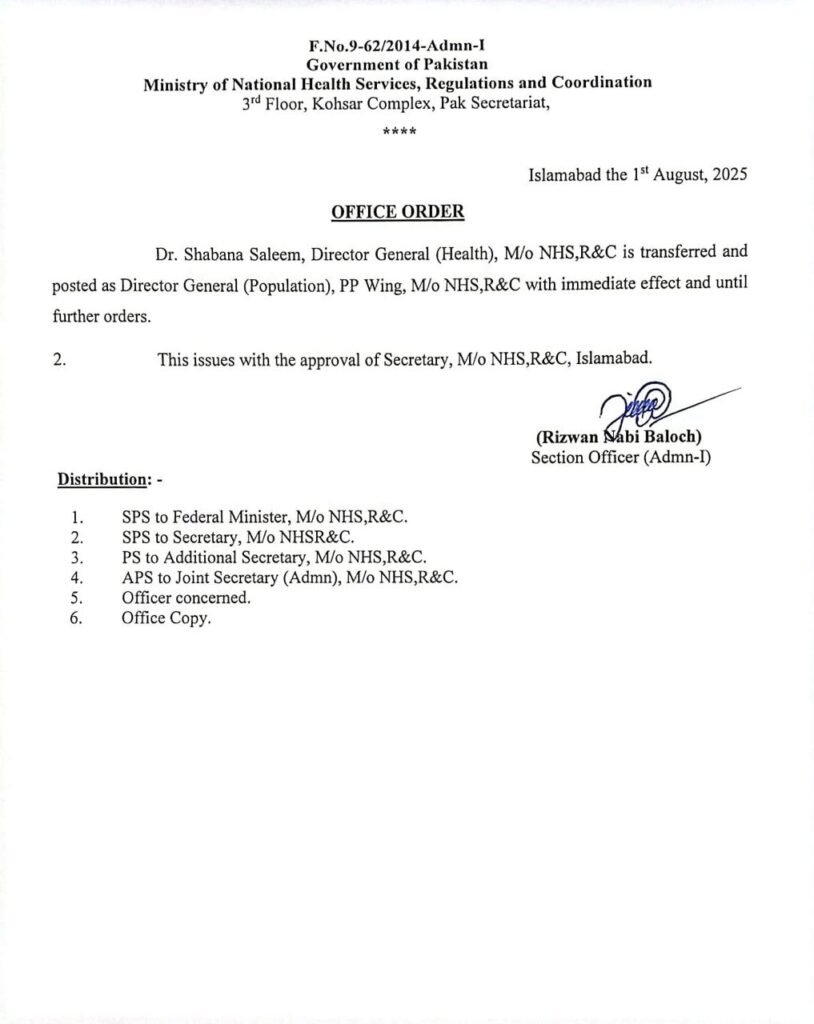Islamabad – In a significant reshuffle within the Ministry of National Health Services, Regulations and Coordination (NHSR&C), Dr. Ayesha Isani Majeed, an influential medical professional and head of the Radiology Department at Pakistan Institute of Medical Sciences (PIMS), has been appointed as the new Director General (Health) with immediate effect, replacing Dr. Shabana Saleem, who has now been posted as Director General (Population), according to official documents issued on August 1, 2025.

An office order issued by the health ministry confirms that Dr. Shabana Saleem, a senior Grade 20 officer and previously serving as DG Health, has been transferred to the Population Wing of the ministry with immediate effect and until further orders.
The move clears the way for Dr. Ayesha’s elevation to one of the most influential administrative positions in the federal health system.
Dr. Ayesha Isani Majeed’s appointment reportedly followed a formal request made directly to the Prime Minister, in which she expressed her willingness to take on the DG Health role as an additional charge while continuing to lead the Radiology Department at PIMS.
She justified her dual role by citing a desire to strengthen healthcare delivery through coordinated administrative and clinical oversight.
However, the development has stirred internal unease within the ministry and PIMS administration. While some officials at PIMS support her appointment, they argue that she should relinquish her radiology post to ensure focused leadership at both ends.

Hospital authorities have formally suggested that the radiology department be handed over to another senior doctor, expressing concerns that multiple concurrent roles — including her position as Project Director of the proposed Cancer Hospital — may compromise operational efficiency and institutional performance.
Sources within the ministry told Vitalsnews that Dr. Shabana Saleem had been promoted to Grade 20 and appointed DG Health on merit, being a senior officer from the medical cadre. They stress that the post of DG Health is a promotion-based position meant exclusively for eligible cadre officers and assert that bypassing the standard rules for such appointments could set an unhealthy precedent.
This is the second major transfer at the DG level in recent months. Earlier, Dr. Sabin Durrani, another Grade 20 medical officer, was removed from the post of DG Population and posted to the Ministry of Planning, Development and Reform on deputation. The recurring administrative shifts have raised concerns about continuity, policy instability, and growing political interference in technical leadership roles within the national health system.
Dr. Ayesha’s appointment reflects not only the changing power dynamics within the health bureaucracy but also the increasing influence of powerful individuals in shaping health governance and policy at the federal level.
